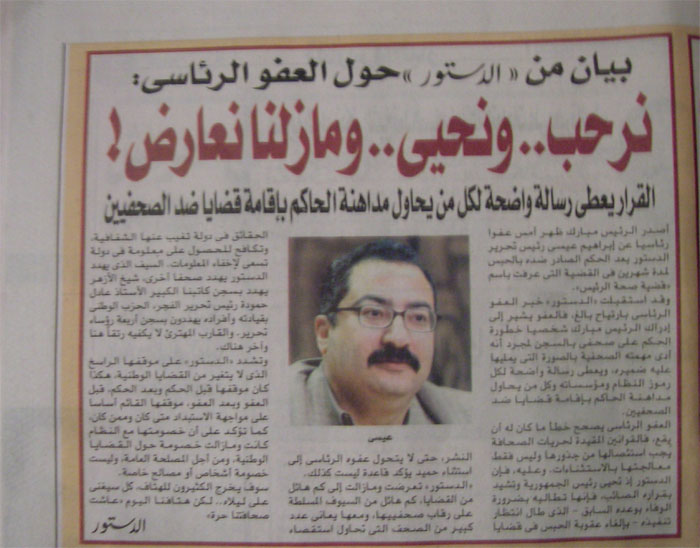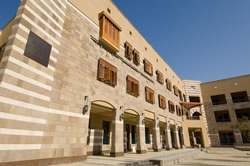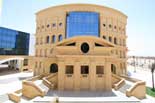Eissa pardon is no victory for press freedom
One of my first memories from moving to Cairo in August of last year was hearing the rumors swirling that Hosni Mubarak had died or was seriously ill, which were subsequently discussed in the local independent press. Ash-Shakkak has the English translation of the offending article from ad-Dostour, but here’s a taste:
The president in Egypt is a god and gods don’t get sick. Thus, President Mubarak, those surrounding him, and the hypocrites hide his illness and leave the country prey to rumors. It is not a serious illness. It’s just old age. But the Egyptian people are entitled to know if the president is down with something as minor as the flu.
In retaliation, several paper editors were sued by nominally private individuals, who accused them of causing capital flight and undermining the symbols [i.e. the president] of the state. This resulted in a year-long legal drama that ended yesterday, when Mubarak gave ad-Dostour’s editor, Ibrahim Eissa, a presidential pardon, forgiving the two month sentence finally issued by the appeals court.
The way I see it, the pardon is neither a government climbdown on press freedom nor a reaction to pressure – although there was more of that in Eissa’s case than others. Rather, the state wins and independent press loses regardless of whether he spends his two months in jail.
The point was not so much that a critic be punished, but that the red line around discussion of Mubarak’s health be touched up. This had already been made abundantly clear over the twelve-month long highly public trial and appeals process, and having a prominent journalist sitting in jail penning witty columns would only invite further scrutiny and pressure.
In fact, the government may have achieved, or thought it was achieving, a PR victory through the pardon, which I first heard about from a ‘breaking news’ text message sent by the state news agency (the subscription to these costs about 1/5 the price of the al-Jazeera ones).
For every “plucky and indefatigable” Eissa, there are many more journalists or activists who aren’t as witty, connected, or lucky who don’t get attention, and more articles not written and things not said.
This can’t be bad for Ad-Dustour’s sales though. I had to go to four different newsstands this morning to find one that hadn’t sold out.




